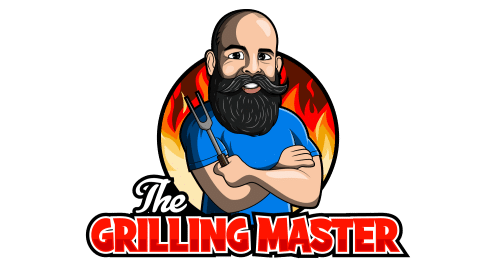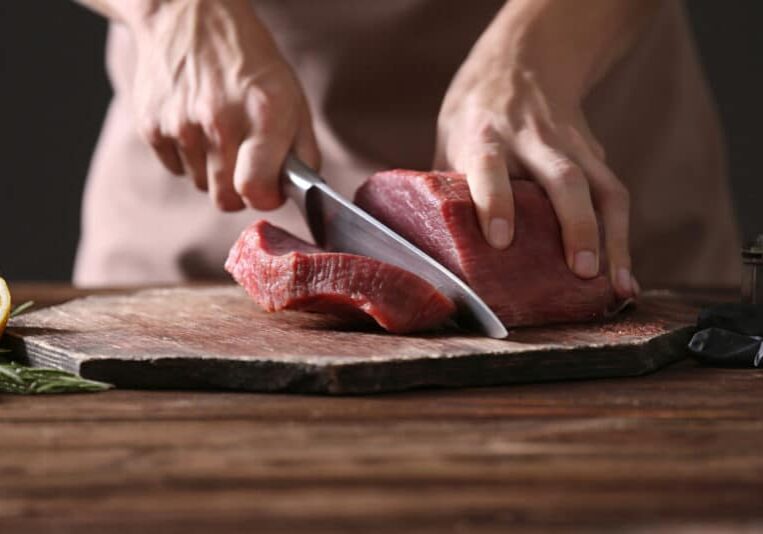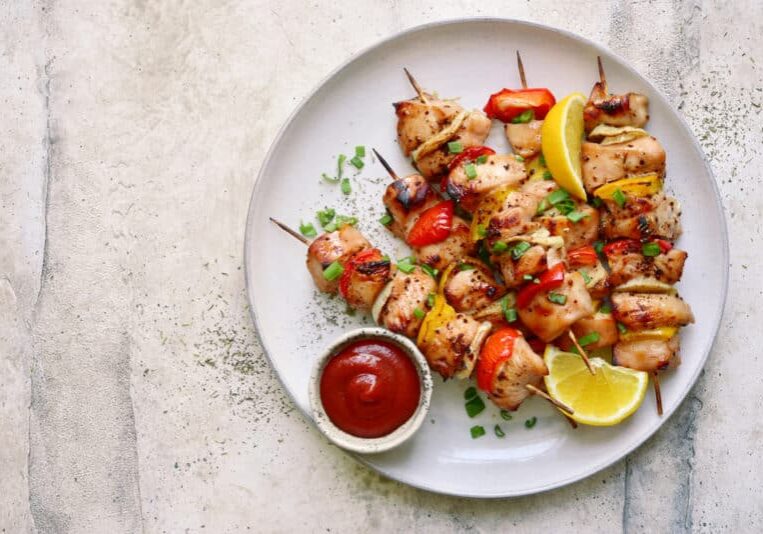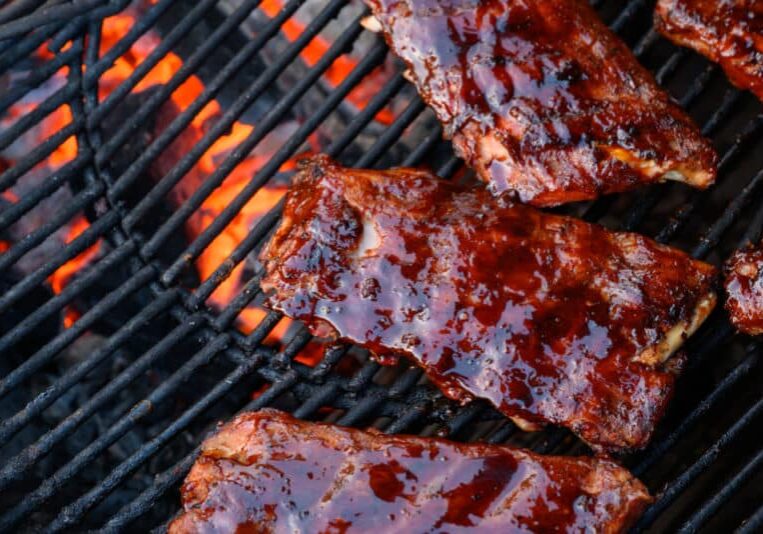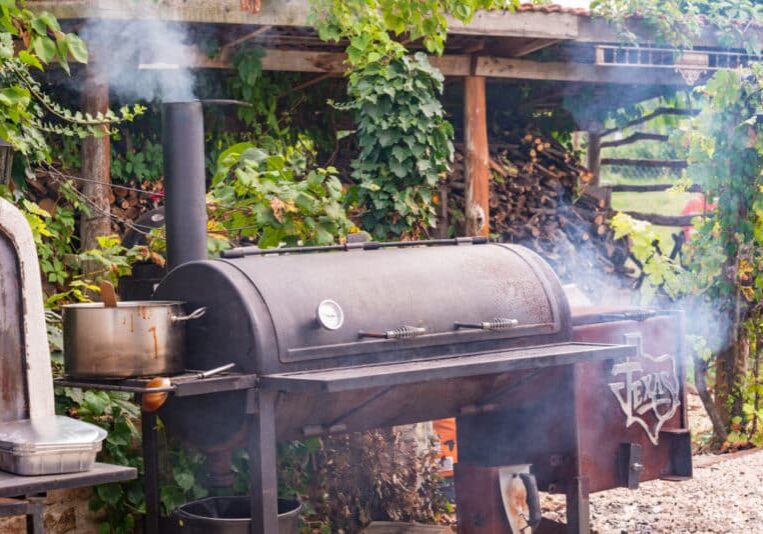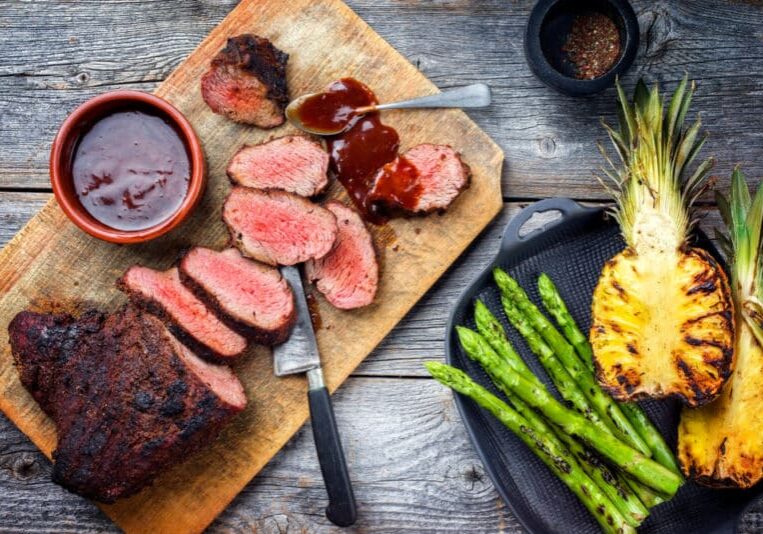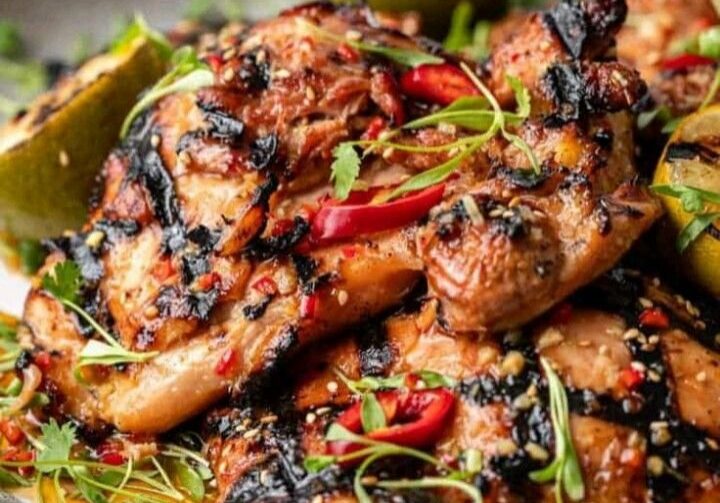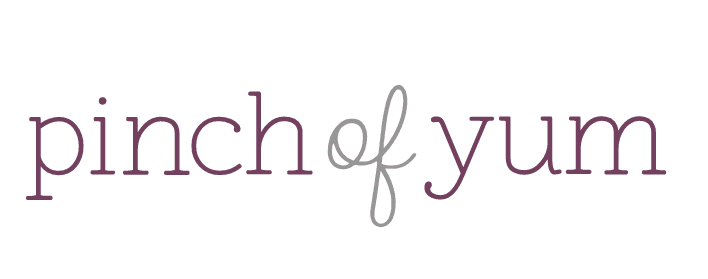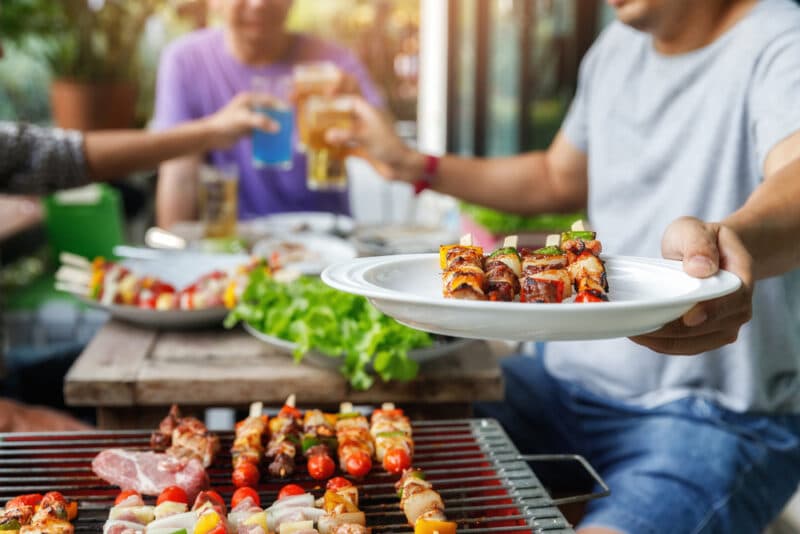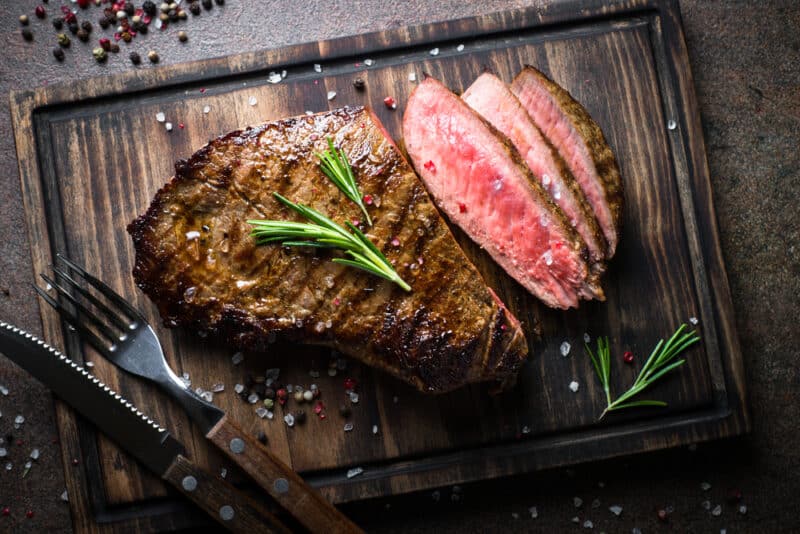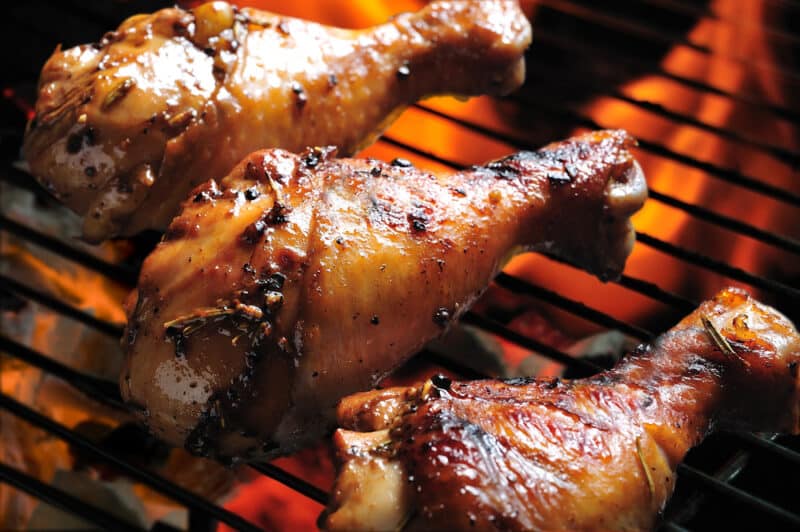How Much Prime Rib Per Person? (Get the Simple Calculation)
TheGrillingMaster.com is reader-supported. If you buy something using the links on our site, we might earn an affiliate commission at no added cost to you. This helps us pay our staff to keep making awesome content for you!
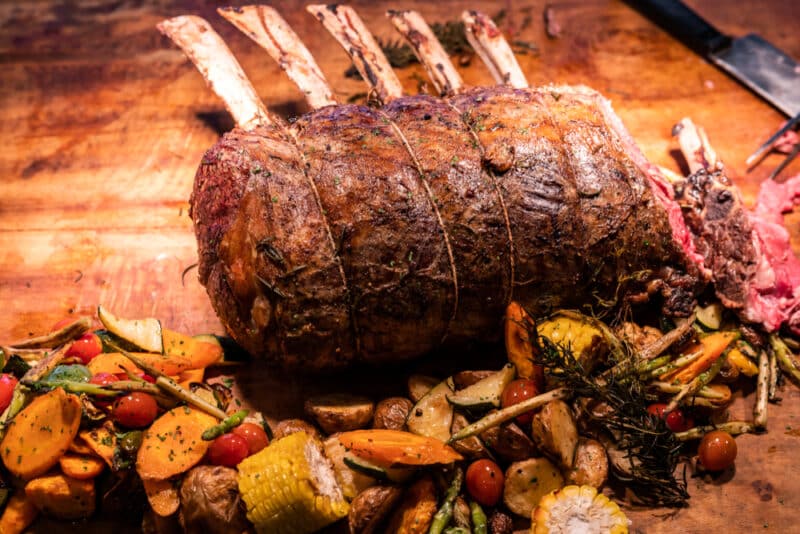
A standing rib roast is special, but getting the right amount of prime rib per person can be confusing. When it comes to planning a special event, it is important to consider every detail, including the food.
For a truly memorable event, a standing rib roast can be a delicious and indulgent option. But how much prime rib should you plan for each person?
This article will provide you with the information you need to ensure you have the perfect amount of prime rib for each person at your special event.
What is Prime Rib, and What Makes it so Special?
A cut from the upper rib section of a steer, the prime rib roast (or standing rib roast) is made up of six to seven ribs and is known for its large, juicy, and tender “eye” of meat at the center.
This eye is marbled with fat and surrounded by a thick cap of fat, as well as a fat-marbled muscle layer.
The fact that the muscle used in this cut is not heavily used makes this eye of the roast special. It is very tender and flavorful. The same cut of meat is also used to make rib-eye steak.
To be considered “prime rib” according to the USDA, the cut of meat needs to be from young, healthy cows and usually have 8 to 13% fat. Nonetheless, some butchers and supermarkets now use the term “prime” to try to increase sales.
A full primal rib has seven ribs, which is a lot of meat, even for a meat lover like me. It is about 20 to 30 pounds!
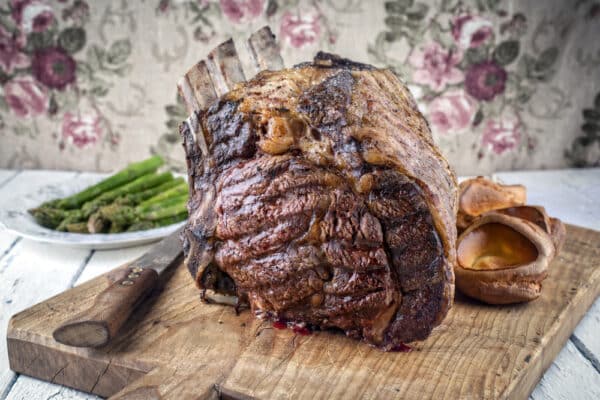
It’s great for feeding many people, but it’s probably too much food for a regular family dinner. My suggestion is to use this article to learn how many rib sections to buy for the number of diners you expect.
You have a choice of bone-in or boneless eye of the rib roast. For me, cooking prime rib with bones is best. When cooked bone-in, it increases the flavor and juiciness, and if you use the low-and-slow process, the meat will fall off the bones, even before you carve it.
How Much Prime Rib per Person
When buying prime rib, you should get about one pound per person. A bone-in-standing rib roast will usually feed 2 people per bone.
Also, think about who will be there – will there be any big eaters or kids? And make sure you have enough side dishes.
Consider the Occasion
If you’re hosting a large holiday meal with plenty of side dishes, plan on ½ pound of prime rib per person. However, if you’re throwing a Thanksgiving buffet, or if you’re serving a standing rib as a main course at a dinner party, people might need or take a bit more since the only meat dish will be the standing rib roast, so you should plan on up to ¾ pound per person.
So, let’s be specific.
How Much Boneless Prime Rib do I Need per Person?
I typically get one pound of beef for every 2 guests, which is a general rule of thumb to use. For example, if I prepare a meal for 6 people, I’ll get 3 pounds of boneless roast.
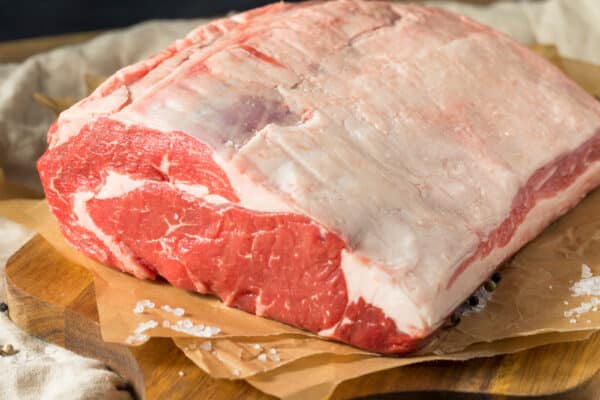
How Much Bone-In Prime Rib do I Need per Person?
For bone-in prime roast, I usually go by the number of bones, or ribs, rather than the weight.
Each rib bone typically provides enough meat to serve 2 people. So, to serve 6 guests, I’ll buy a rib roast with 3 to 4 bones, which will be enough and might even be good for big eaters!
TIPS
- If you want the extra flavor that comes from a bone-in prime rib but don’t want to deal with serving the bones, here’s a good option. Ask the butcher to take out the bones and tie them back on. This way you can cook the bones with the meat, but then you can quickly take them off before slicing the roast.
- Get a bone-in roast that’s a bit bigger than you think you need. The meat can shrink by up to 20% when cooked, so this will leave you with the right amount of food for everyone and nobody will go hungry.
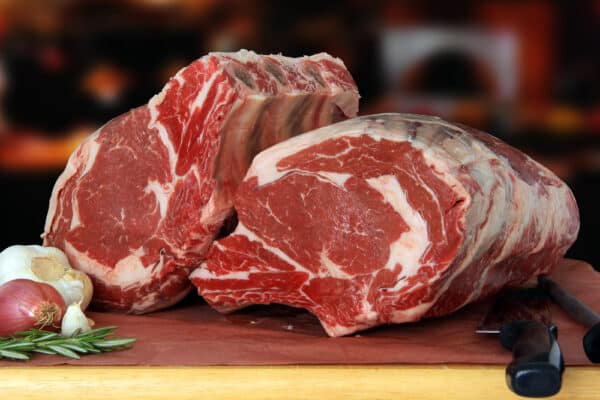
You can use this table as a guide to calculate how much prime rib per person:
|
Adults |
Bone-in Prime Rib |
Boneless |
|
|
To Serve |
Number of Ribs Bones |
Pounds |
Prime Rib |
|
4 |
2 |
4 |
2 |
|
6 |
3 |
6 |
3 |
|
8 |
4 |
8 |
4 |
|
10 |
5 |
10 |
5 |
|
12+ |
2 × 4-bone |
12+ |
6+ |
What to Look for When Buying Prime Rib
Prime rib might be the most expensive piece of meat that you will ever prepare, so it is crucial to know how to buy the best, and how much to get.
Prime Rib Prices You Can Expect to Pay
The price of prime quality standing rib in the US can differ depending on the quality of the cut of beef, how much fat and marbling it has, its age, where you are, and whether it has a bone or not.
Generally, you can expect to pay $15 to $30 per pound in supermarkets and meat shops.
For VERY special occasions, I prefer ordering Wagyu Beef Prime Rib from Snake River Farms, but the price can be as high as $60 per pound.
However, prices change due to demand, inflation, and other market shifts, so it’s always best to check with local stores or online to get the most up-to-date price in your area.
You can get varying amounts of fat on the ribs, depending on the section you buy:
- Loin end – includes ribs 10 to 12, also known as the first cut or small end. It has more meat with less fat. It is leaner and very tender.
- Chuck end – Includes ribs 6 to 9, also called the second cut or blade end. This section has more fat and is best for those who aren’t concerned with their diet.
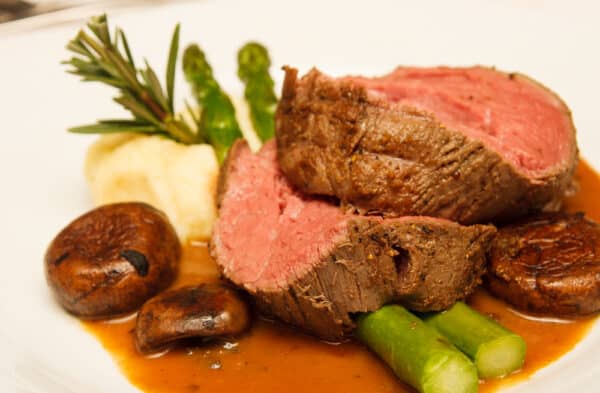
Avoid Confusion When Buying Prime Rib
Due to the USDA’s control over the term Prime, the different names used in stores could be confusing.
Bottom line, when you’re talking about prime rib these days, it’s just a general name for a rib roast, standing rib eye, or eye of the rib roast. All of these are cut from the same area.
Nowadays, when people use the word “prime” with rib roast, they’re usually referring to the grade of the meat.
When you buy a rib roast, look for one that has a big eye of meat in the center, plenty of marbling, and a thick fat cap.
Prime rib is known for its marbling, and it’s that fat in between the muscles that gives it that delicious flavor.
This marbled fat between the ribs infusing the meat with its distinctive, delectable taste.
When selecting a prime rib roast, it’s wise to opt for a size that exceeds your initial estimate. This is because the meat can reduce in size by up to 20% during the cooking process. Choosing a slightly larger cut ensures there will be plenty to share, preventing any dinner plates from feeling a tad empty.
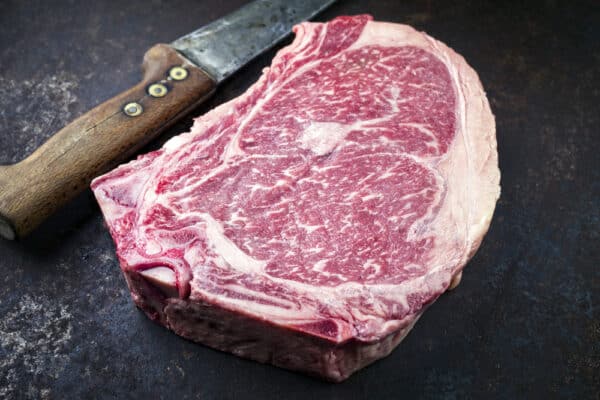
Here’s How to Get the Highest Quality Prime Rib
If you want the highest quality, go for the USDA PRIME. It won’t be cheap, though.
The best prime rib I’ve ever had is American Wagyu Prime Rib from Snake River Farms. Wagyu is a Japanese cattle breed that produces super-marbled beef.
Authentic Wagyu is really rare and highly valued. It’s special because it keeps gaining intramuscular fat as it grows.
When Japanese Wagyu is crossbred with other cattle breeds, you get American Wagyu with great marbling and the classic beef flavor that Americans love.
Cooking a Prime Rib
The way you prepare a prime rib is your choice of cooking method and roasted rib recipe.
For me, nothing comes even close to a low-and-slow smoked prime rib on a pellet smoker, with only the basic S&P seasoning to avoid masking the rich flavor of the beef.
The best smoking process to ensure that your meat is cooked to perfection is setting up a two-zone grill.
Before we proceed – the only way to get the desired results is to monitor the internal temperature of the prime rib. Don’t splurge on the best cut of meat for your centerpiece and then skimp on buying a good quality meat thermometer.
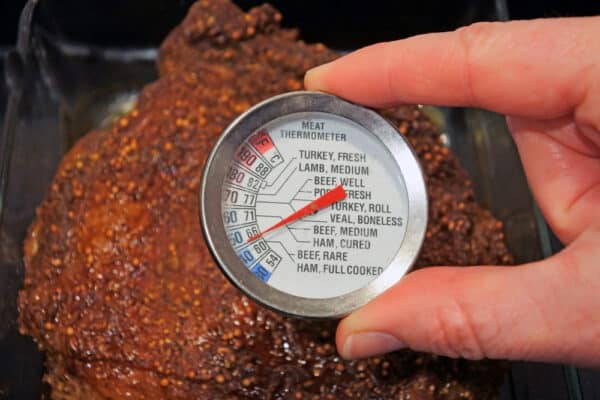
A rib roast is a large piece of meat, and salt, pepper, and other seasonings need time to penetrate. Therefore, I suggest seasoning the prime rib for at least 6 to 8 hours before putting it on the grill.
Light your smoker and preheat it up to about 250 °F before putting the rib roast in the cooler zone to slowly absorb the smokey flavor.
Related reading >> How Long to Smoke Brisket at 250 degrees.
Although some pitmasters say you should work on a cooking time of about 1 hour per bone, like 4 hours for a four-bone roast, I trust only my meat thermometer to manage the doneness of any smoked roast.
TIP: Place a roasting pan underneath your bone rib as it cooks to catch all those tasty juices. To make sure the “jus” doesn’t burn, I usually add a bit of water to the pan.
A meat thermometer is essential to ensure you get a perfectly cooked prime rib!
Use this guide to monitor the internal temperature
|
Desired Result |
Internal Temperature |
|
Rare |
115 to 120 °F |
|
Medium-rare |
115 to 120 °F |
|
Medium |
115 to 120 °F |
|
Medium well |
115 to 120 °F |
Once the temperature reaches about 10 degrees below the desired temperature, remove the roast from the smoker and let it rest at room temperature for 30 to 40 minutes.
The internal heat will rise to the desired temperature during this time.
Now, for the last bit of magic, place the rib back on the BBQ grill, but this time in the high-heat zone. Sear it for about 10 to 15 minutes to get a nice all-over bark on the outside.
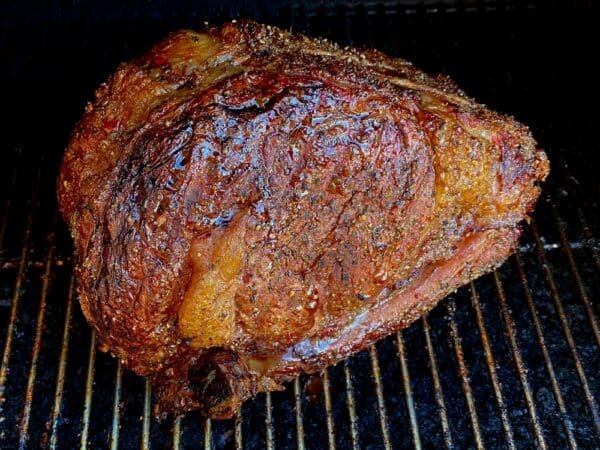
For example, if I want a nice medium-done prime rib, I’ll remove it when the internal temp is 129 °F, and let it rest until the temp goes up to between 135 and 140 °F. Then for the quick sear over high heat to get that awesome barky outside texture.
If you follow these guidelines, you’re sure to serve the perfect standing rib roast and be the hero at your holiday dinner.
Related Reading>> Learn the best way to reheat your prime rib.
Frequently Asked Questions
Q: How much prime rib per person should I plan for?
A: As a general rule of thumb, plan for 1 pound of bone-in prime rib per person. If you’re serving boneless rib roast, plan for 3/4 to 1 pound per person.
Q: How many servings can I get from a bone-in prime rib roast?
A: Typically, you can get 2 to 3 servings per bone-in prime rib roast, depending on the size of the roast and how thick you slice it.
Q: What if I have a mixture of big and small eaters?
A: If you have a mixture of big and small eaters, it’s best to err on the side of caution and plan for 1 pound of prime rib per person, regardless of their appetite.
Q: What if I have leftovers?
A: Prime rib leftovers can be refrigerated for up to 3 to 5 days or frozen for up to 6 months. Leftover standing rib can be used for sandwiches, salads, stews, or other dishes.
Learn More About Grilling
If you want to learn more about grilling, check out these other helpful resources!

Kevin Turner
Hi there, I'm Kevin Turner, Founder and CEO of thegrillingmaster.com. I started this website to share my passion and knowledge with you. You can leverage my years of experience as a pit master and professional to grill great food!
About The Grilling Master
Hi there, I'm Kevin Turner, Founder and CEO of thegrillingmaster.com.
My passion has always been grilling, smoking and BBQ delicious meats that satisfy my inner carnivore!
I started this website to share my passion and knowledge with you, the hungry reader who wants to prepare the perfect meal.
You can leverage my years of experience as a pit master and professional.
Send me a message and let's connect on Twitter here.
